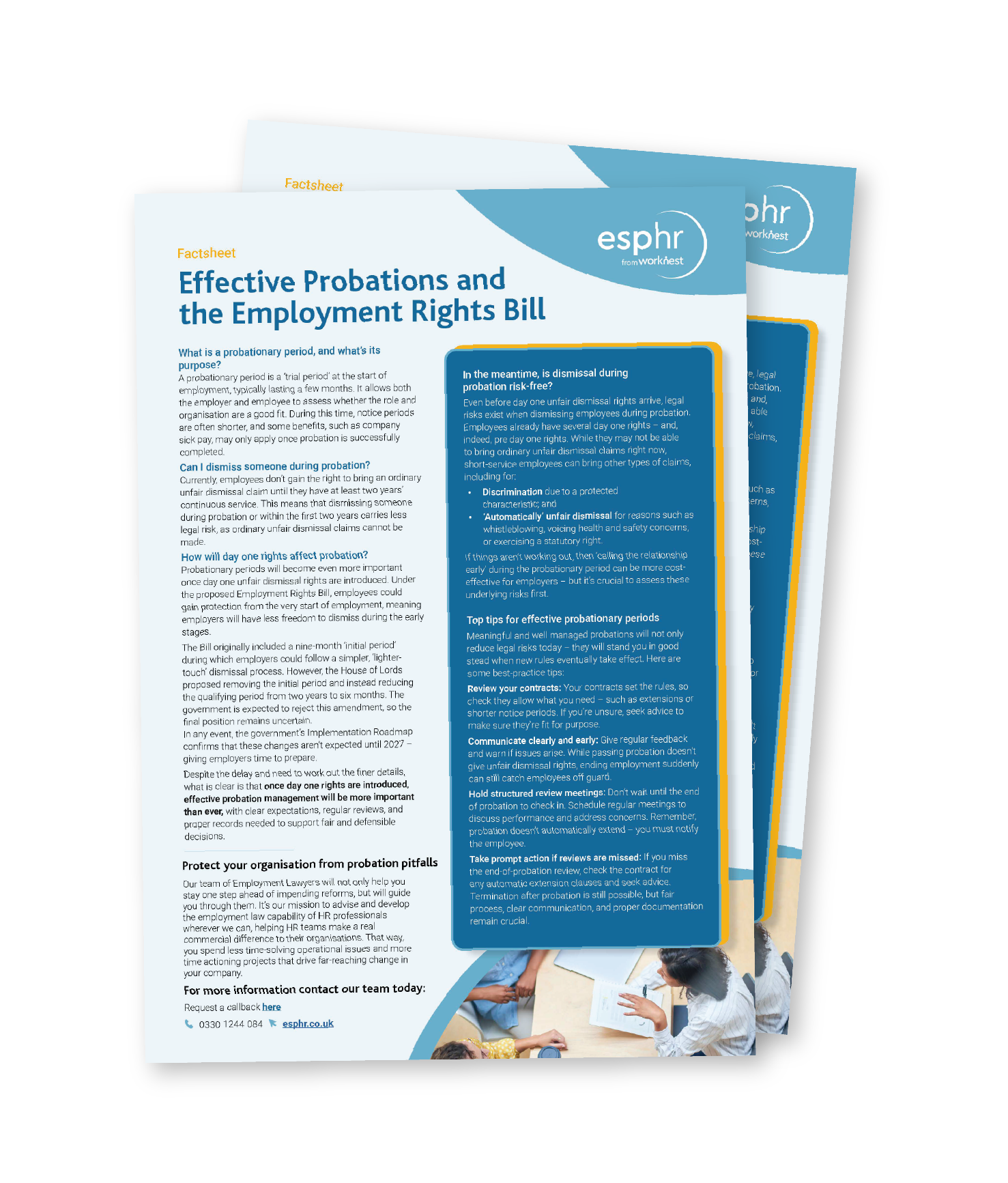Neurodiversity is an umbrella term covering a range of neurological differences, such as ADHD, Autism, Dyslexia, Dyscalculia, Dyspraxia, and Tourette’s. These neurological differences can manifest in various ways and, depending on how an individual is affected, might amount to a disability under the Equality Act 2010.
Neurodivergent individuals can bring huge benefits to an organisation, including enhanced creativity, productivity and innovation.
The benefits of neurodiversity in the workplace
Supporting neurodiversity at work means recognising and valuing people’s differences. Hiring from a diverse pool of talent, which includes neurodiverse people, can bring many benefits to employers, for example:
- Unique perspectives and approaches to problem-solving
- Increased creativity and productivity
- Improved team dynamics
- Collaboration and Innovation
By celebrating neurodiversity at work, and fostering an inclusive workplace culture, businesses can tap into the full potential of their workforce and gain a competitive advantage in the market.
What the law says about neurodiversity in the workplace
The Equality Act 2010 prohibits various types of discrimination and other unlawful conduct in connection with or because of one of nine ‘protected characteristics’, one being disability..
Under section 6 of the Act, the legal definition of someone with a disability is someone:
“with a physical or mental impairment [that] has a substantial and long-term adverse effect on [their] ability to carry out normal day-to-day activities.”
The “substantial” adverse effect must be more than minor or trivial and the effect of an impairment must have lasted, or is likely to last, for at least 12 months for it to be “long term”
If a job applicant’s or employee’s impairment meets the definition of disability, the employee is considered disabled for the purposes of the Act, and they are protected from disability discrimination and discrimination arising from disability, harassment, and victimisation. Separately, the employer has a duty to make reasonable adjustments where a disabled job applicant or employee is placed at a substantial disadvantage.
Recently updated Acas guidance, published in January 2025, states that “nobody has to tell their employer they’re neurodivergent. If they do decide to share it, it’s up to them when and how they do this.” It should be noted that a job applicant or employee does not necessarily need a formal diagnosis to be considered disabled under the Act. These guidelines emphasise the importance of supporting neurodivergent employees, whether or not they have a formal diagnosis or choose to disclose their condition.
Reasonable adjustments
Section 20 and Schedule 8 of the Equality Act 2010 impose a duty on employers to make reasonable adjustments to help disabled job applicants and employees in certain circumstances. The duty can arise where a disabled person is placed at a substantial disadvantage by: (1) an employer’s provision, criterion or practice, (2) a physical feature of the employer’s workplace or (3) an employer’s failure to provide an auxiliary aid.
Failure to make reasonable adjustments is a form of disability discrimination which can form the basis of a standalone employment tribunal claim.
Reasonable adjustments are often simple and inexpensive, but they can lead to considerable improvements to the performance and wellbeing of neurodivergent employees. Making adjustments is crucial to preventing discriminatory conduct which could have a serious financial and reputational impact on employers, together with adversely affecting the morale and wellbeing of employees.
Examples of reasonable adjustments for neurodivergent employees
There is no single definition of ‘reasonable’ so a one-size-fits-all approach will not apply.
Some examples of reasonable adjustments for neurodivergent employees that an employer could take, include:
- Having a designated desk in a hot-desk environment for an autistic employee
- Structuring breaks into long meetings for an employee with ADHD
- Allowing additional time to complete tasks for an employee with ADHD or dyslexia
- Having fixed shifts and routine rather than variable hours or tasks for an autistic employee
- Varying a dress code for an employee with dyspraxia
- Providing noise-cancelling headphones to employees who are hypersensitive to sound
- Providing coaching or a mentoring system
- Funding the purchase of, and training in, assistive technology (such as time management or speech-to-text software)
Building a neuroinclusive workplace
It’s important for employers to recognise that each neurodivergent individual has their own unique strengths and challenges. For example, an adjustment that works well for one autistic employee, might not be suitable or necessary for another autistic person.
Organisations should strive to create an environment that values the unique skills and talents of neurodivergent individuals. By embracing neurodiversity at work, fostering a culture of inclusion and providing appropriate training and adjustments, organisations can support individuals to thrive in their roles – ultimately enhancing business success and maintaining a competitive edge.





